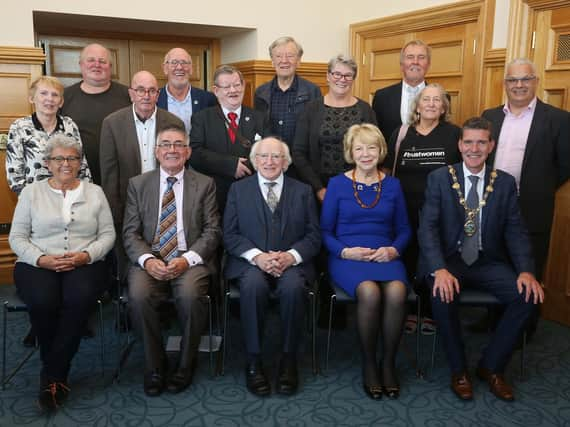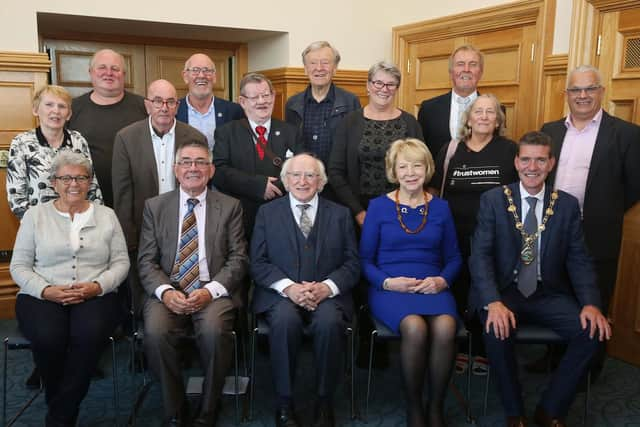Video: President Michael D. Higgins says October 5, 1968, shocked the world


The President made the remarks in his address at the international Civil Rights Festival in the Guildhall.
In a far-ranging speech President Higgins observed that almost 50 years after the foundation of Northern Ireland “structural features of the state” remained “in key legislative areas, sectarian” and that this came to a head in Duke Street on October 5, 1968.
Advertisement
Hide AdAdvertisement
Hide AdIronically, he observed, how the progressive 1947 (Northern Ireland) Education Act that extended free education to the over 11s and raised the school leavers’ age to 15 had generated a vanguard of leaders and intellectuals in “Ivan Cooper, John Hume, Bernadette McAliskey, Eamonn McCann, Seamus Deane and Seamus Heaney” that would help shape the Derry of the 1960s and beyond.


Some of these were on the frontline when what the old Unionist regime at Stormont had believed was an immovable object met the unstoppable force of the civil rights movement in Derry.
“It would be the march of 5 October 1968 here in this city which brought the Civil Rights Movement to the attention of the world,” said the President. “It was, of course, undertaken at the request of the Derry Housing Action Committee, and may I say what an honour it is to see some of the members of the Committee here today,” he said.
President Higgins pointed out that as with the housing protest in Caledon of the same year it was ordinary women demanding what they believed were their natural rights and entitlements that provided the movement with its initial impetus.
Advertisement
Hide AdAdvertisement
Hide Ad“As Fionnbarra Ó Dochartaigh has reminded us, the origins of the Committee can be found in February 1968, following a discussion at Derry Corporation’s Housing Department between four women – ‘Mrs. McNamee, Dillon, Olphert, and Quigley’ - living in flats on Limavady Road who had been forced to live by candlelight when they had found their electricity cut off,” he said.
The President said the Derry Housing Action Committee like the movement as a whole had been a “broad church” comprising “socialists, republicans, labour activists, and trade unionists, including, of course, Fionnbarra Ó Dochartaigh, Eamonn Melaugh, and Eamonn McCann”.
He recalled a sense of awakening upon witnessing the images of RUC members batoning peaceful protestors of the streets half a century ago.
“Like all those who viewed them on the television, I can still recall the images of the Civil Rights march of the 5th of October - the baton-charge by the police on Duke Street, the kicking and punching of protestors – and I remember reading contemporary reports on the intimidation of photographers and cameramen documenting the attack,” he stated.
Advertisement
Hide AdAdvertisement
Hide Ad“These images profoundly shocked people across Ireland, Britain and the wider world, and instantly linked, in the minds of many who saw them, the struggle for civil rights in Northern Ireland to the other great movements for freedom, democracy and social justice across the world - connecting Derry to Paris, Rome, Berlin, Prague, Mexico City, Warsaw and Cairo."